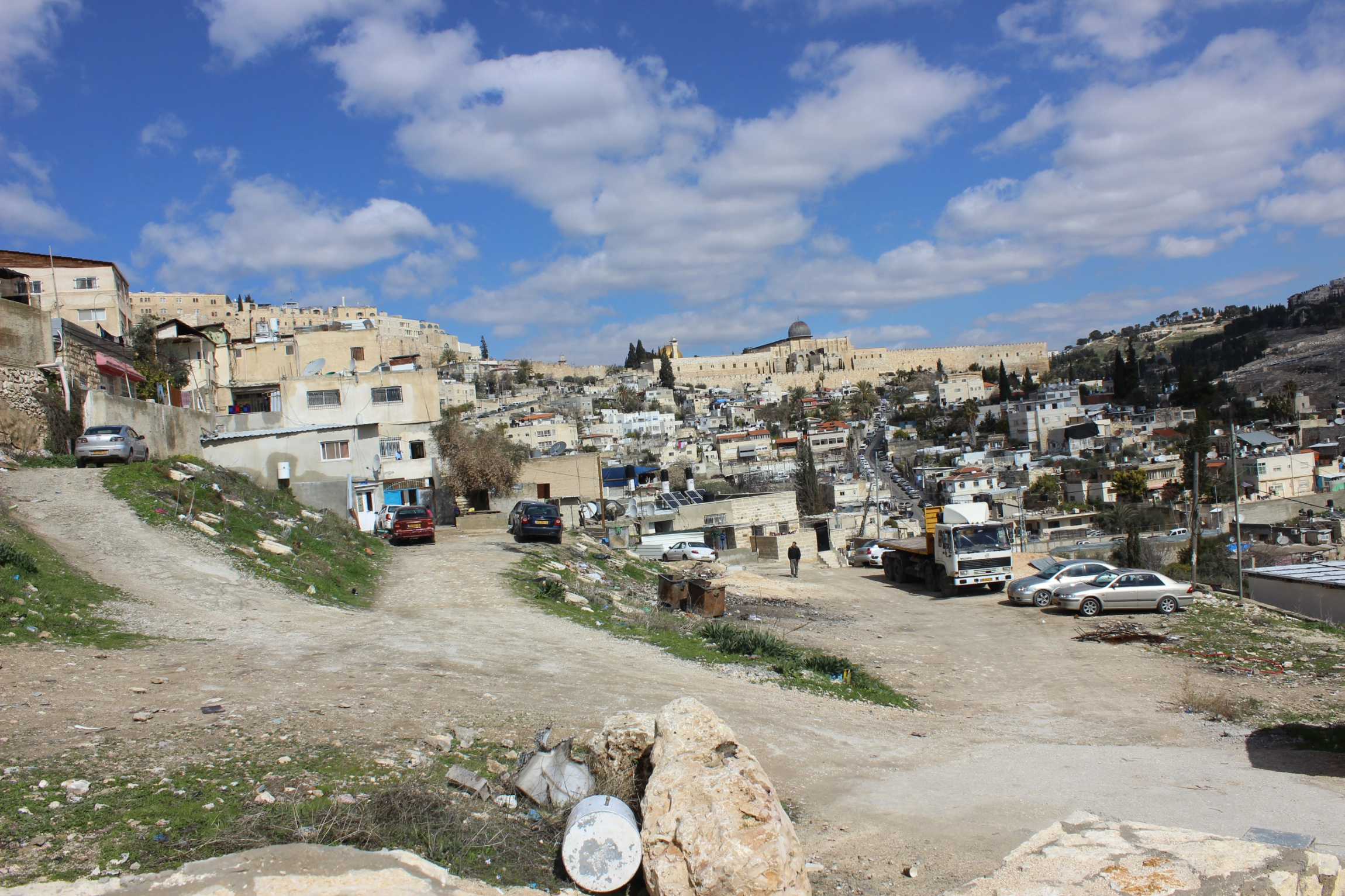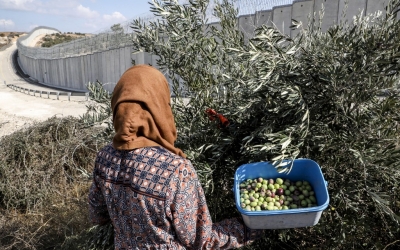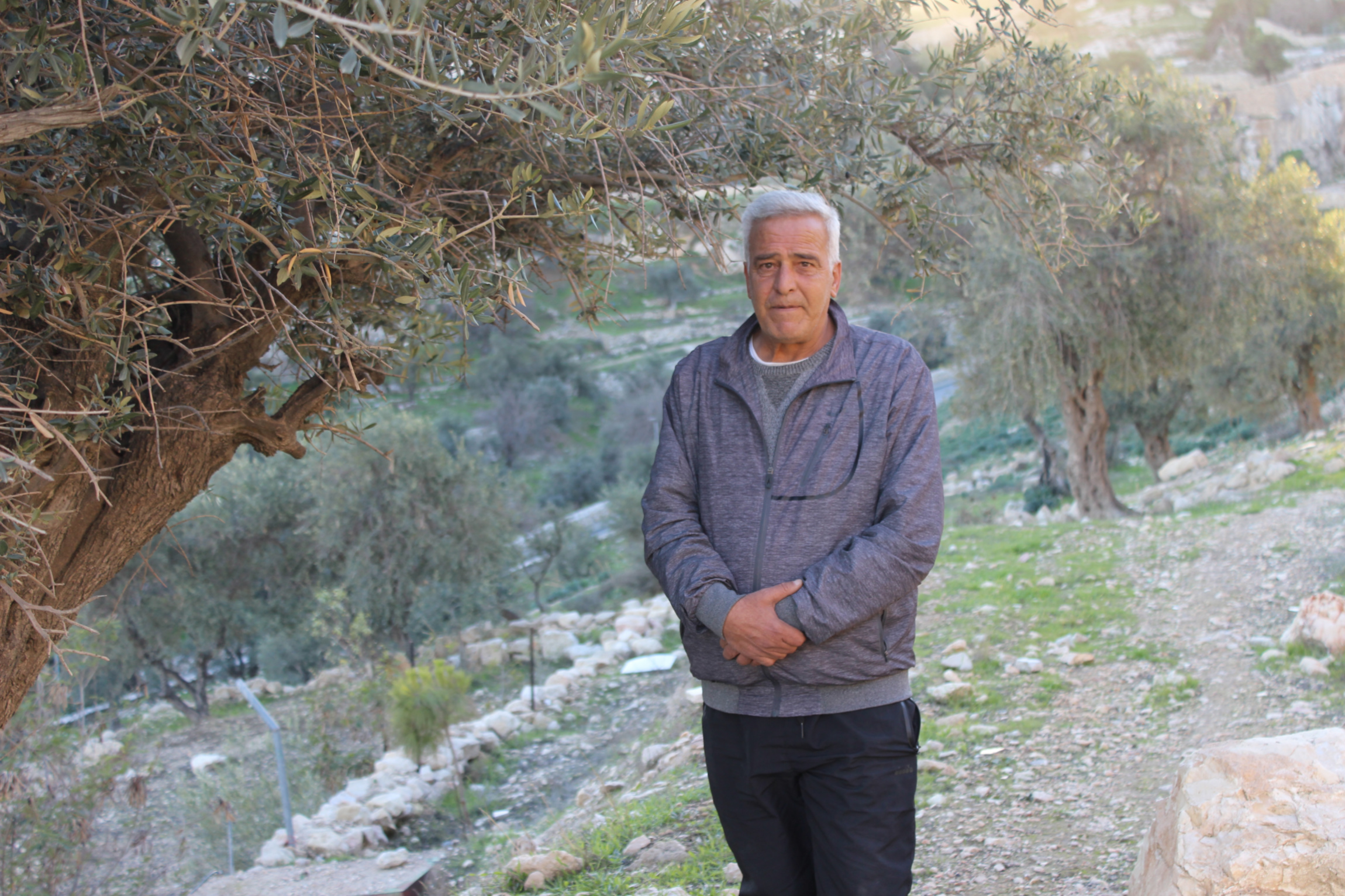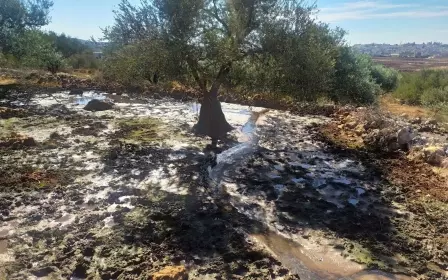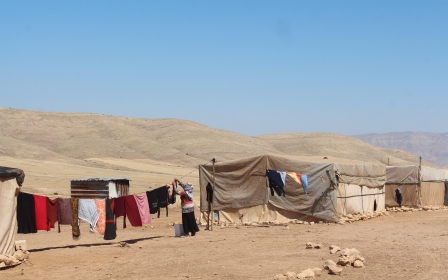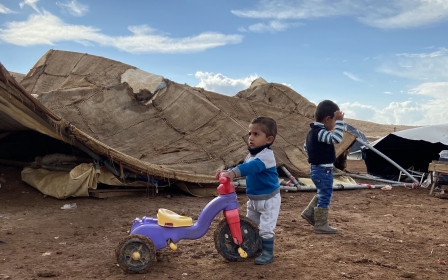'Until my last breath': Palestinians of Jerusalem defend land against Israel’s bulldozers
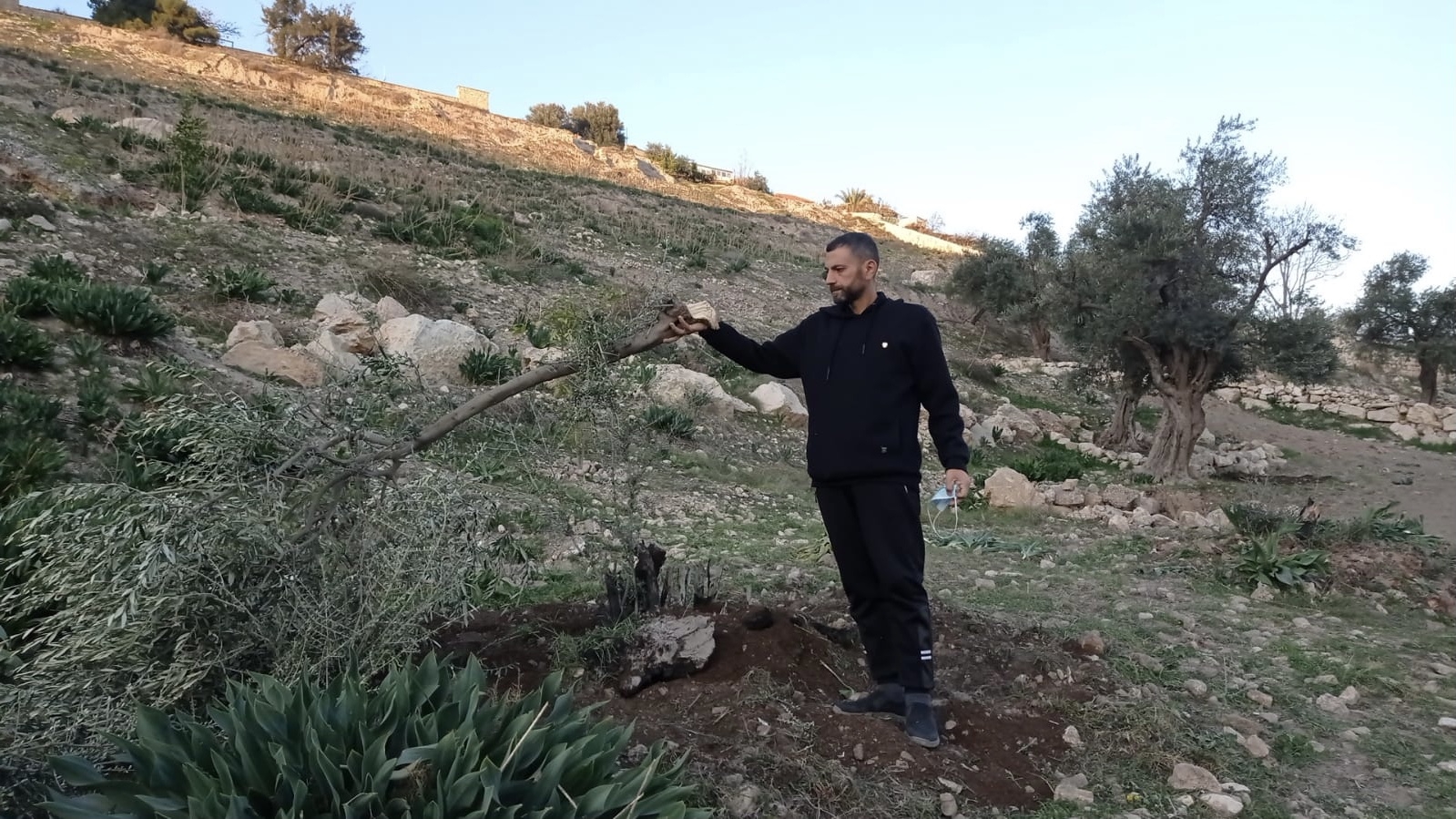
The Palestinians of Wadi al-Rababa have long been at war with Israeli bulldozers. But with a recent increase in harassment, residents have accused Israeli authorities of taking advantage of the pandemic to grab land which they have owned for generations.
On Sunday, Israeli bulldozers demolished retaining walls on the Palestinian-owned land of Wadi al-Rababa and uprooted dozens of trees, declaring that Israeli crews would carry out cleaning and gardening on agricultural lands.
In an attempt to protect their one hectare of land from being taken over, young Palestinian men from the al-Samrin family and their neighbours lay down in front of the Israeli bulldozers.
The Wadi al-Rababa lands in the Silwan neighbourhood of occupied East Jerusalem comprise about 21 hectares, on which about 800 Palestinian Jerusalemites live precarious lives due to harassment and attacks by Israeli forces, attempting to expel them from their lands.
New MEE newsletter: Jerusalem Dispatch
Sign up to get the latest insights and analysis on Israel-Palestine, alongside Turkey Unpacked and other MEE newsletters
In 2004, the al-Samrin family turned to the Israeli Lands Authority to confirm their land ownership and the Israeli court recognised their claim, adding that there was not a confiscation decision against it.
However, the Israeli crews claimed they have permission to work and would not stop unless a court order was issued against it.
During the latest confrontations, the crews have summoned the Israeli police and army, headed by the al-Yisam unit, to disperse Palestinian protesters obstructing their work. Israeli police arrested five young men, and fired tear-gas bombs and rubber bullets towards the residents, causing breathlessness among women and children.
Shadi al-Samrin, one of the young men protesting against the Israeli operation, said that their land was private property, and its people had papers proving that their ownership dates back to the Ottoman era.
Shadi claimed that the Israel Nature and Parks Authority (INPA) has had the lands of Wadi al-Rababa under its annexation radar for decades.
However, he added, the INPA had intensified its attacks after the outbreak of Covid-19 in Jerusalem last March - a good opportunity for Israeli bulldozers to carry out such operations when there were fewer people on the streets to obstruct their work.
"I lay down in front of Israeli bulldozers because this land is our most valuable possession. If I lose my land, there will be nothing left to lose afterwards,” Shadi said.
“I had to get up when they threw sound and gas bombs. I would not have gotten up if it was not for my 60-year-old cousin, Omar, who was targeted by Israeli forces.
“He is an old man and carries an oxygen tube on his back; he needed urgent help.”
Like blood in their veins
Shadi and his neighbours said that they had become accustomed to repeated attacks from the Israeli government over the years. In one such instance of harassment, Israeli crews had taken to dumping waste from restoration and rebuilding work from other areas on Wadi al-Rababa's lands.
The area’s residents, meanwhile, continuously take turns to protect their properties by protesting, farming the lands or simply by constantly being present.
'It is like blood that runs in my veins and I will fight for it until my last breath'
- Omar Samrin
Recalling his memories of the place, 43-year-old Shadi said that he would never forget the good times he had spent on his land with his children, the ploughing season and the harvesting of olive trees, despite non-stop Israeli attempts to change the features of the city after it was occupied in 1967.
After the latest confrontations, Shadi and a lawyer representing the Palestinian families went to a court specialising in emergency cases to ask for an immediate order to stop the work of the Israeli crews. However, no decision had yet been issued, so further attacks on the lands in the coming days were likely.
As if rooted to the ground, Shadi’s cousin, Omar al-Samrin, had stood crying and screaming, refusing to leave his land after two young Palestinian men tried to steer him away from Israeli gas bombs.
"I spend five hours a day on my land. Every time I come here, I feel like going to the park,” Omar told MEE.
“These trees have been so generous to me and my kids; they have given me as much of their goodness as I have given them hard work.
“It is like blood that runs in my veins and I will fight for it until my last breath."
Abdul-Karim Abu Sneineh, head of the Wadi al-Rababa neighbourhood committee, said there was no doubt over Palestinian ownership of the lands that the INPA was interfering with.
“The occupation is not fighting the Palestinian population with weapons alone, but with the power of arbitrary laws, represented in the biased Israeli judiciary and other executive institutions.”
Judaisation project
Abu Sneineh explained that the lands of Wadi al-Rababa were divided into two parts: the first comprised lands occupied in 1948 and subject to full Israeli control; the second comprised lands occupied in 1967, whose ownership was Palestinian, according to Ottoman and Jordanian identification papers, papers which were now being tampered with.
'The occupation is not fighting the Palestinian population with weapons alone, but with the power of arbitrary laws'
- Abdul-Karim Abu Sneineh, neighbourhood committee
“What irony is this? How could an agency named after the Nature and Parks Authority uproot trees and destroy farmland under the pretext of cleaning, gardening and protecting nature?” Abu Sneineh said.
Israeli pressure on Wadi al-Rababa residents has not stopped since the occupation of the eastern part of Jerusalem in 1967, with the claim that the lands were on the site of the so-called Holy Basin of the "Solomon Temple".
According to Abu Sneineh, soldiers were constantly breaking into homes and carrying out searches, sabotaging possessions and stealing jewellery. Meanwhile, Israeli municipality crews and INPA authorities uprooted trees in order to push residents to leave.
The head of the maps department at the Arab Studies Society, Khalil al-Tafakji, said that Israel always used religion to achieve its political goals and that what was happening in Wadi al-Rababa was a prime example.
This was a deliberate approach followed by Israeli authorities to direct the ownership of these farmlands to a biblical path, Tafakji claimed. The policy was intended to implant the Jewish narrative in the minds of tourists after the completion of a suspension bridge and railway project.
In early 2018, the Israeli authorities had dug the foundations for a suspension bridge, expected to be 240 metres long and 30 metres high, which would run from the al-Thawri neighbourhood, passing through Palestinian-owned lands in Wadi al-Rababa, and reaching the Muslim endowment area of al-Dijiani.
The bridge was part of a Judaisation project funded by Israel Land Authority and the Open Spaces Fund at the cost of six million shekels ($1.9m).
The project planned to establish Talmudic gardens and Israeli tourist parks and paths linking the Old City with the Wadi al-Rababa neighbourhood.
Middle East Eye delivers independent and unrivalled coverage and analysis of the Middle East, North Africa and beyond. To learn more about republishing this content and the associated fees, please fill out this form. More about MEE can be found here.


